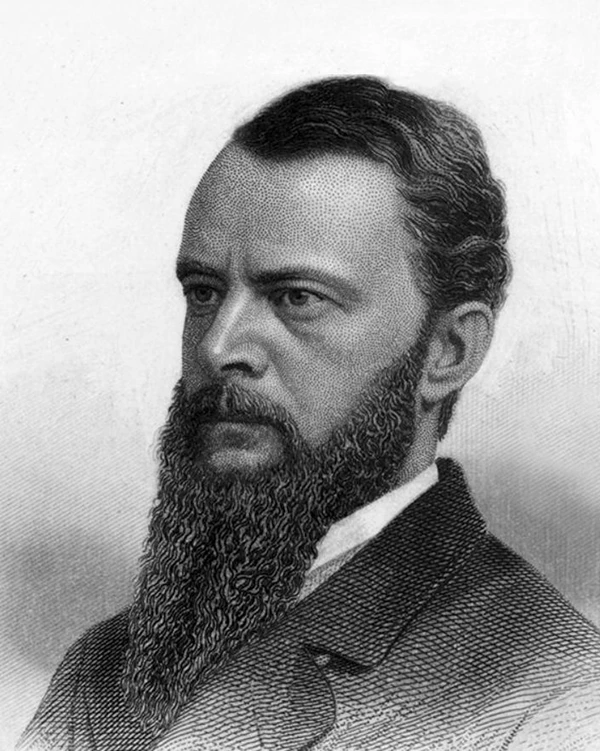Last updated: January 16, 2026
Person
Edward Alfred Pollard

Pollard's "Southern History of the War, Volume 2," 1866.
Edward A. Pollard was a prolific writer and newspaper editor from the 1850s to the 1870s. His many publications largely focused on advocating secession and slavery before the Civil War, and upholding the righteousness of the Confederacy in the war’s aftermath.
Early Life
Edward A. Pollard was born in Virginia on February 27, 1832. After graduating from the University of Virginia in 1849, Pollard studied law at the College of William and Mary and received admittance to the bar. In 1855, he moved to California and wrote for a newspaper.
From the beginning of his career as an author, Pollard staunchly defended the institution of slavery as a moral and economic good, even advocating for the restoration of the transatlantic slave trade. By 1859, he was an early advocate for Southern secession, which he saw as necessary to protect and expand slavery.
The Civil War and Imprisonment at Fort Warren
At the outbreak of war, Pollard served as editor for the Richmond Examiner, in which role he continued to propagate his ideas for the duration of the conflict. Though a devout supporter of the Confederacy, Pollard and the Examiner often criticized Confederate President Jefferson Davis and his government, which they accused of mismanaging the war.
In 1864, Pollard attempted to sail to England on the British steamer Greyhound, but the ship was intercepted by the USS Connecticut as it attempted to sail through the US Navy blockade. Now a prisoner, Pollard was sent to Fort Warren on May 29, 1864. Major Stephen Cabot, the Fort’s commander at the time, had Pollard quartered in the basement of Bastion C, which mainly housed Confederate naval officers and sailors, political prisoners, and those in solitary confinement.
Like most other Confederate prisoners, Pollard was well-treated at Fort Warren. He enjoyed certain privileges, such as being allowed to walk along the shore outside the Fort’s walls. After the war, he wrote Observations in the North: Eight Months in Prison and on Parole, an account of his experiences following his capture. Contrary to all other existing evidence concerning the treatment of prisoners at Fort Warren, and especially contrary to Alexander Stephens’ account of his own captivity, Pollard was scathing in his condemnation of the prison’s conditions:
...once I had passed through the sally-port of Fort Warren, I found a catalogue of misery that I never could have supposed to exist even in that most famous of Yankee bastiles.1
Pollard was granted parole on August 12, 1864, and left Fort Warren. He was again imprisoned that December in Fort Monroe, Virginia before being released in a prisoner exchange in January 1865.
Later Life
Pollard continued his writings after the war, maintaining his strong defense of secession and slavery in a series of publications. His most famous book, The Lost Cause: A New Southern History of the War of the Confederates, not only justified the South’s actions in the Civil War, but it also advocated renewed resistance against the Reconstruction efforts of the federal government. The phrase "Lost Cause" as a historical term originates from this work.
Edward A. Pollard died on December 17, 1872 at the age of 40. By the time of his death, he had tempered some of his more radical views, but the Lost Cause movement that he had helped originate continued long after his death.
Footnote
- Edward A. Pollard, Observations in the North: Eight Months in Prison and on Parole. (Richmond: E.W. Ayres, 1865), 33.
Sources
Chisholm, Hugh, ed. "Pollard, Edward Albert". Encyclopædia Britannica. Vol. 22 (11th ed.). Cambridge University Press, 1911.
Stokinger, William A. and Beth Jackendoff, Fort Warren George’s Island Fort Tour Background Package, Massachusetts Department of Conservation and Recreation, 2008.
Snow, Edward Rowe, Historic Fort Warren, Boston Printing Company, 1941.
